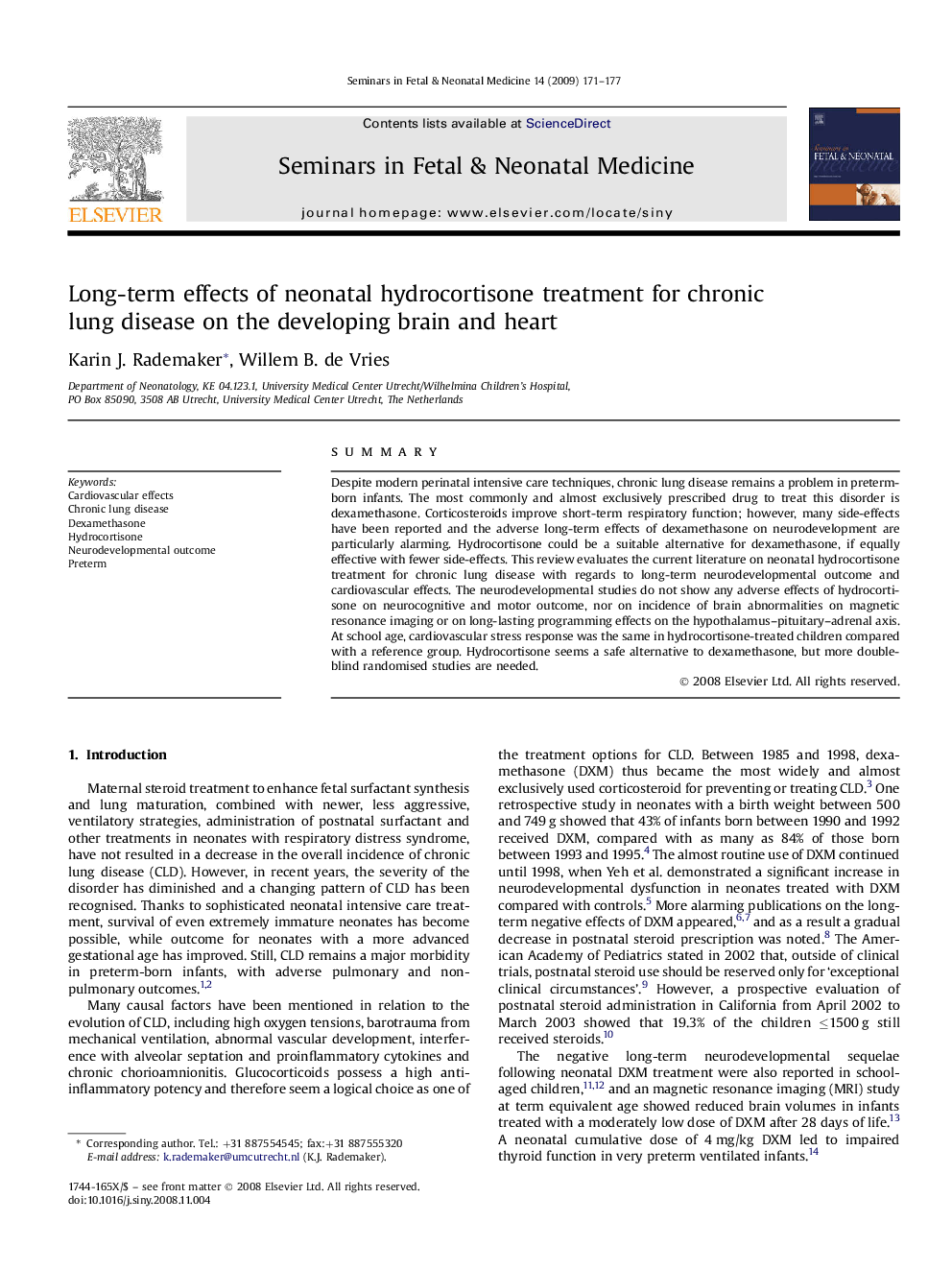| Article ID | Journal | Published Year | Pages | File Type |
|---|---|---|---|---|
| 3974336 | Seminars in Fetal and Neonatal Medicine | 2009 | 7 Pages |
SummaryDespite modern perinatal intensive care techniques, chronic lung disease remains a problem in preterm-born infants. The most commonly and almost exclusively prescribed drug to treat this disorder is dexamethasone. Corticosteroids improve short-term respiratory function; however, many side-effects have been reported and the adverse long-term effects of dexamethasone on neurodevelopment are particularly alarming. Hydrocortisone could be a suitable alternative for dexamethasone, if equally effective with fewer side-effects. This review evaluates the current literature on neonatal hydrocortisone treatment for chronic lung disease with regards to long-term neurodevelopmental outcome and cardiovascular effects. The neurodevelopmental studies do not show any adverse effects of hydrocortisone on neurocognitive and motor outcome, nor on incidence of brain abnormalities on magnetic resonance imaging or on long-lasting programming effects on the hypothalamus–pituitary–adrenal axis. At school age, cardiovascular stress response was the same in hydrocortisone-treated children compared with a reference group. Hydrocortisone seems a safe alternative to dexamethasone, but more double-blind randomised studies are needed.
